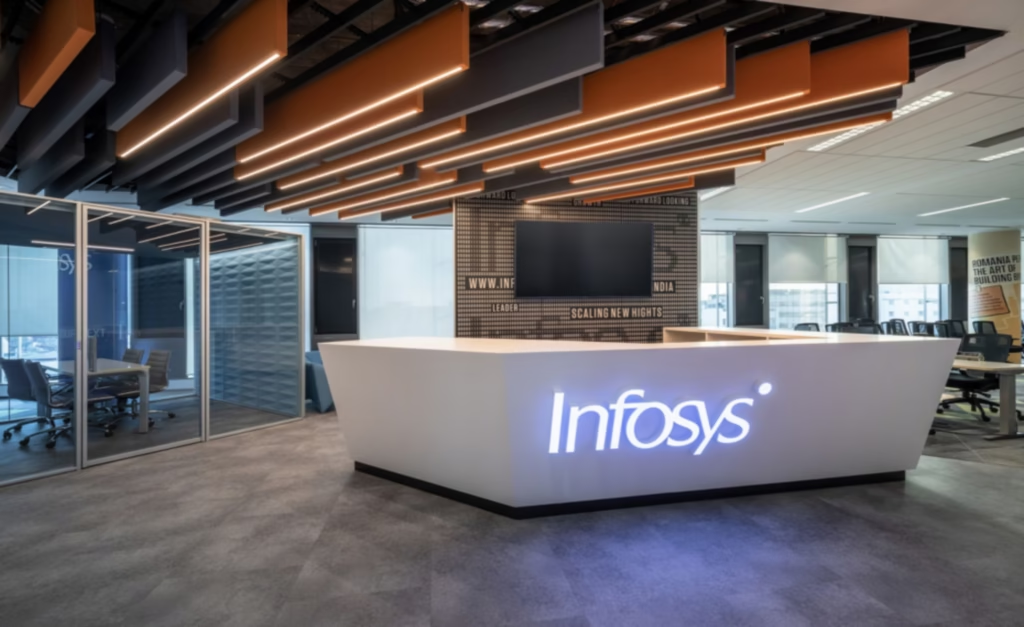Infosys has initiated a counterclaim against Cognizant in a United States court, asserting that Cognizant and its CEO, Ravi Kumar, have engaged in anticompetitive behaviors aimed at suppressing competition and preserving their market dominance in the healthcare payer software sector.
In its legal action, It has requested a jury trial and is pursuing triple damages for the losses suffered, in addition to the recovery of legal fees and related expenses. This legal maneuver follows Cognizant’s lawsuit filed six months prior, in which it accused Infosys of misappropriating proprietary information from its health technology subsidiary, TriZetto.
Cognizant had acquired TriZetto for $2.7 billion in 2014. In 2019, Infosys sought to contest Cognizant’s stronghold in the healthcare payer software market by developing a new payer software platform named Helix, designed to meet the increasing demand for cloud-based solutions among clients. It contends that Cognizant took steps to obstruct its initiatives in developing a competing software product. According to Infosys, Cognizant established barriers to entry and lured away key executive sponsors from the project, who were allegedly encouraged to impede the progress of the product during their final tenure with the company.
The lawsuit contended that Kumar, the former president of Infosys
Served as the primary executive sponsor of Helix and actively promoted the initiative during his time with the company. However, in 2022, Kumar’s previously positive outlook and enthusiasm for the Helix product took a downturn. He began to withdraw his support, refusing requests for essential resources, which resulted in a delay of at least 18 months in the project’s completion.
In October 2022, Kumar left Infosys and was soon appointed as the new CEO of Cognizant Technology Solutions (CTS). The lawsuit further alleged that Cognizant engaged in an anticompetitive strategy to hinder the launch of Helix by specifically recruiting senior executives pivotal to the project, including Kumar, Shveta Arora, and Ravi Kiran Kuchibhotla. These individuals were reportedly incentivized to postpone and obstruct the development and marketing of Infosys Helix in the months leading up to their exits.
This behavior was purportedly aimed at neutralizing the emerging competitive threat posed by Infosys to Cognizant’s supremacy in the healthcare payer software sector, as indicated in the document reviewed by TOI.
The counterclaim indicated that Kumar, Arora, and Kuchibhotla continued to receive confidential updates regarding the Helix business strategy and product pipeline throughout 2021. During that same year, Infosys entered into several contracts related to Infosys Helix, significantly enhancing the company’s value. The trio was aware that one of Infosys’s tactics to “displace” and vigorously compete with Cognizant involved utilizing Infosys’s software platforms, including Infosys Helix, due to the presence of “CTS (Cognizant) fatigue” in major accounts.
In spite of being confronted with these missed opportunities and associated challenges, Kumar persisted in resisting requests for resources to aid the development of Helix, instead advocating for a “slow down” in its progress. He suggested that Infosys should not allocate excessive engineering funds to Helix, as indicated in the document. An email addressing this issue sent to Infosys did not receive a response prior to the publication of the report.

The anti-competitive measures included the implementation of most favored vendor or first right of refusal clauses within Cognizant’s payer agreements. These provisions effectively enabled Cognizant to prevent its software clients from assigning IT services work to competitors like Infosys. Limitations on product training diminished competitors’ ability to prepare staff for service delivery. Furthermore, prohibitions on the development of supplementary products that could integrate with Cognizant’s software, along with unilateral non-solicitation agreements, safeguarded Cognizant’s workforce from being poached while simultaneously undermining its rivals’ competitive capabilities.
Upon contacting Cognizant, the company responded by stating, “Cognizant is dedicated to maintaining the utmost standards of integrity across all business activities and will take prompt measures to address any claims that may jeopardize its competitive position. While Cognizant supports healthy competition, it is unacceptable for competitors to exploit Cognizant’s intellectual property for unfair advantage, as has been the case with Infosys. Cognizant’s software offerings are recognized in the market for their excellence and are highly favored by customers.”
You may also like
Career opportunities in emerging technologies
